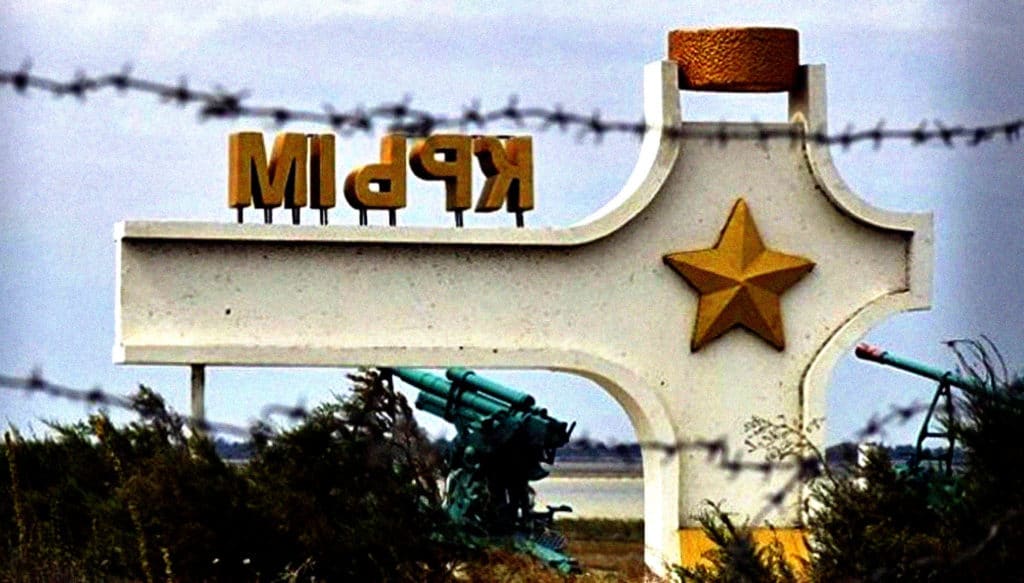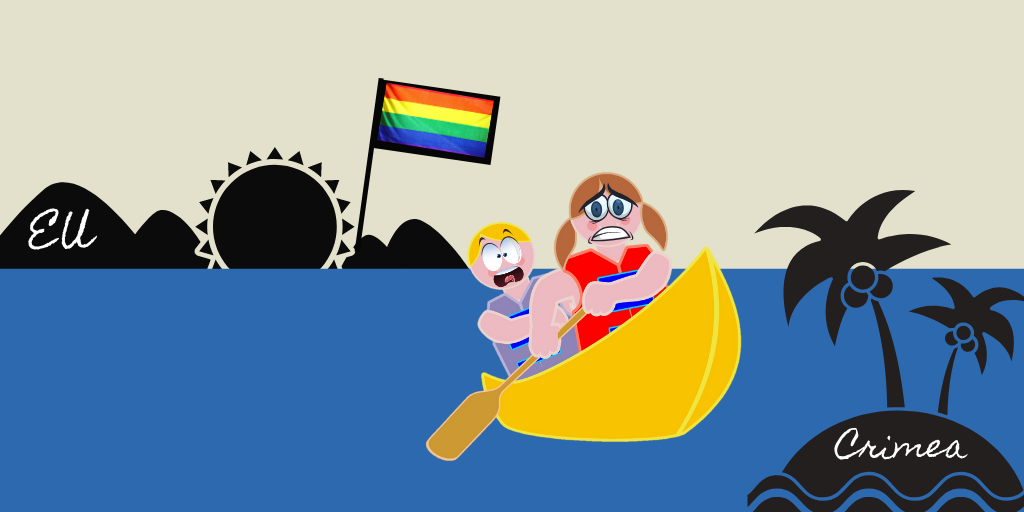russia is desperately seeking recognition for its Crimea annexation
 Read in Google News!
Read in Google News! 
Crimea is Ukraine. However, the kremlin and its propaganda machinery will go many extra miles to seek out support of the inaccurate claim that Crimea’s status changed as a result of russia’s invasion and illegal annexation in 2014, writes euvsdisinfo.eu.
This craving for recognition forces pro-kremlin media to produce a monotonous and ritualised flow of variations over a well-known theme: someone somewhere said something that confirms russia’s official slogan, “Crimea is ours” .
Macron is “aware”
Earlier this month, a number pro-kremlin media disseminated the story that Ukrainians living outside Ukraine condemn the sanction policy targeting Crimea. In reality, the people in question were participants in a roundtable discussion with 15 persons organised in Crimea by the russian occupying authorities.
Last week, audiences were told on russian state TV Rossiya 1 that Crimea was transferred to Ukraine by russia in the 1980s and 1990s. The truth is that Crimea became a part of the Ukrainian Soviet Republic in 1954 in observance of all Soviet legal provisions. What did happen in the 1990s, however, was that russia signed a treaty with Ukraine in which it reaffirmed its respect for the territorial integrity and sovereignty of Ukraine. russia violated this treaty in 2014.
We have also recently seen RT’s Arabic Service peddling the old, but still inaccurate narrative that russia’s annexation took place as a result of a popular vote. As we know, what made the annexation possible was hardly the so-called “referendum” – which was conducted hastily and at gunpoint, barring impartial observers from entering the peninsula – but rather russia’s military invasion.
RT’s French Service chimed in with the postulate that president Macron is allegedly “aware” that the question of Crimea is definitely settled.
Refuge from aggressive sexual education
We have also earlier highlighted numerous similar cases of manipulations meant to underpin the kremlin’s dream of support of its geopolitical delusions.
“Delegation from the US calls Crimea referendum expression of the will of the people”, RIA Novosti told in a headline; but the source of the claim was an NGO activist and private citizen, not an official US representative, as the headline suggested.
“German Media Outlets Report on the ‘Renaissance’ of russian Crimea,” RIA Novosti reported at another occasion. But it was only one outlet. And it had only existed for two months.
“Europeans are seeking refuge from aggressive sexual education, homosexual dictatorship and juvenile justice,” readers were informed in a colourful report from another russian outlet.

Crimea is a favourite destination of “Europeans seeking refuge in russia from aggressive sexual education, homosexual dictatorship and juvenile justice,” the readers of Life.ru were told.
At the same time, questioning the official kremlin line over what actually happened in Crimea in 2014 is subject to censorship.
The recent outburst of Crimea-related propaganda is thus in line with what we have seen before. The question is if the constant repetition makes russian audiences believe more in the narrative – or if they have begun to doubt what they are being told.
Recent polling in russia suggests that the trust in the centrally controlled and generously government-financed media is on a significant decline.

